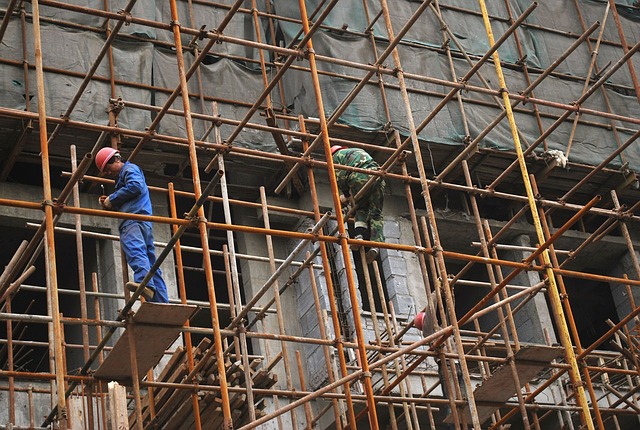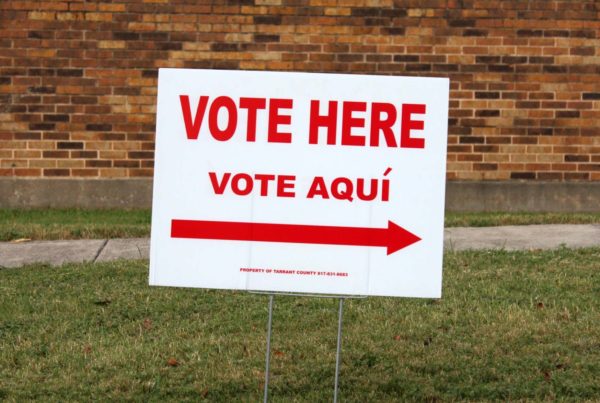In 2015, the Texas Legislature approved a little-noticed amendment to state finance statutes. It doesn’t sound very interesting until you look more closely: That amendment was intended to boost affordable housing projects, but it has also resulted in windfalls for private real estate developers, with little oversight.
In one instance, a group of businessmen formed their own government entity, using the status as a municipality to arrange deals for developers across the state, outside of the boundaries of the district.
Eric Dexheimer, who has been reporting on this for the Houston Chronicle, spoke with the Standard about how developers are using the rule, and why lawmakers may revisit it. Listen to the story above or read the transcript below.
This transcript has been edited lightly for clarity:
Texas Standard: At the center of your reporting is SH130 Municipal Management District No. 1, which sounds like a unit for getting some project done. But you describe it basically as a small government unto itself. What is it, like a little town or what?
Eric Dexheimer: It’s what’s called a special district, and it’s been created with the permission of the Legislature. It’s essentially 1,100 acres out in eastern Travis County by the Austin airport. The owners of it are also those who manage it, and they’re their own government out there. They kind of elect each other to oversee this property. Their hope is that they’re going to develop into a kind of multi-use property out there with, you know, residences and businesses and so on.
So how does this work legally? You sort of describe them as having their own government. What part of Texas law makes it possible for this SH130 Municipal Management District to operate on its own?
The state Legislature has laws that allow businessmen to create these. The most common ones are called municipal utility districts, and it allows developers to make these developments in these small cities and improvements in them like sewage and water and things like that, by charging landowners within those districts to help cover the costs of kind of building those districts.
Is this district doing anything that sounds illegal or against the spirit of the laws in place?
Well, they’ve taken advantage of this 2015 law to build affordable housing. The idea was that local municipalities or local governments would use it to help build housing within their borders. And what this management district is doing is it’s using the law to create these deals outside its borders – so all over the state, not just in its thousand-acre little patch of agricultural land in rural Travis County.
Was that what the law was intended to make possible for people – to sit on patches of land and then kind of dictate new developments in other parts of the state?
Nobody I spoke to indicated that that was the intent of the law. The intent of the law was for local governments to help, you know, produce housing for their citizens. In this case, not only is this small special district creating deals in other parts of the state, they’re also collecting money from it that’s leaving these other municipalities and flowing back to this government.
Is this municipal management district you focus on actually building affordable housing in their land?
Not that I’ve seen yet. I mean, they have a number of deals that are in Williamson County and Travis County and Bexar County and Hays County. And those are all obviously well outside their borders.
How much of this is actually affordable housing, and who’s overseeing this?
So it’s hard to tell since they haven’t built it yet. The law only requires that the housing be, kind of, modestly affordable. That is, for people making 80% of the average or median family income in an area. They haven’t produced any of these developments yet, so it’s hard to say what the contracts are requiring. In terms of oversight, you know, because these are being done in areas that aren’t even aware that they’re in their backyards, there’s not a lot of oversight to it.
Let’s talk winners and losers here. The developers are getting tax breaks and benefiting. What about who’s on the other side of this?
Again, these local municipalities where the affordable housing is supposedly being built, they don’t know the first thing about it. They don’t know what kind of housing is being built there. So I guess they have to see what eventually is produced.
Are other organizations speaking out about it or protesting it or raising concerns?
Senator [Paul] Bettencourt, who represents Houston, has expressed concern that the places where these tax breaks are being given, they have no idea that their money is leaving their district and they don’t know what’s being built there, what they’re getting for their money.
Do you sense that lawmakers may try to revisit this?
Senator Bettencourt says he intends to ask the attorney general whether or not this law is being used in a legal way, and he has expressed his intention to try to get some more rules in place that would prevent this from happening.














